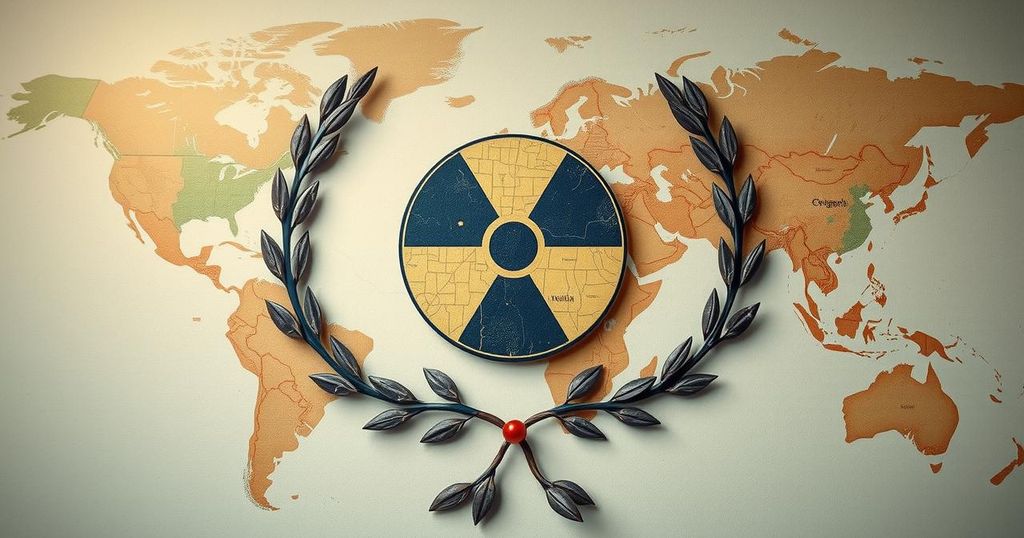Khamenei Rejects Trump’s Nuclear Talks Proposal as Unwise and Dishonorable

Iran’s Supreme Leader Ayatollah Khamenei has declined President Trump’s offer for nuclear talks, asserting such negotiations are unwise and dishonorable. Trump’s push for a verified nuclear agreement follows new sanctions and a history of failed US-Iran diplomacy, particularly after the US exited the 2015 nuclear deal. With Iran reportedly nearing nuclear weapon development, the prospects for resolution remain bleak.
Iran’s Supreme Leader Ayatollah Ali Khamenei has rebuffed US President Donald Trump’s proposal for negotiations regarding a nuclear agreement, labeling talks with the United States as unwise and dishonorable. Trump’s recent statements, made following the imposition of new sanctions, included aspirations for a ‘verified nuclear peace agreement’ with Iran, despite a backdrop of heightened tensions between the two nations.
Khamenei emphasized on Friday that experience has illustrated that negotiations with the United States are neither intelligent nor honorable, reflecting a strong refusal to engage in dialogue at this juncture. This statement followed comments from a senior Iranian official who suggested a possible opportunity for the US to resolve ongoing disputes.
President Trump previously withdrew the United States from the Iran nuclear deal, an agreement established in 2015 under the Obama administration, which aimed to contain Iran’s nuclear capabilities in exchange for sanctions relief. That deal, which was endorsed by multiple nations, faced criticism from Trump and Israeli Prime Minister Benjamin Netanyahu, who deemed it unfair due to its temporary clauses.
Post withdrawal, Trump executed a strategy of ‘maximum pressure’ against Iran, imposing severe sanctions with hopes of compelling negotiations. However, the strategy has yielded contrary results, leading Iran to accelerate its nuclear activism, pushing closer to capabilities for weapon development. According to US intelligence, Iran is now on the verge of producing a nuclear weapon within 12 to 18 months.
The dynamics between the United States and Iran have been historically tense, especially after the US’s withdrawal from the 2015 nuclear agreement, which aimed to prevent Iran from developing nuclear weapons. The reintroduction of heavy sanctions by the Trump administration under the guise of ‘maximum pressure’ aimed to reshape Iran’s policy through economic hardship. However, this approach has backfired, resulting not in subdued nuclear ambitions but in Iran enhancing its nuclear program significantly. As such, current diplomatic overtures have become framed within a context of mutual suspicion and strategic posturing.
In conclusion, Ayatollah Khamenei’s firm rejection of President Trump’s offer for nuclear talks emphasizes the enduring complexities of US-Iran relations. The Iranian leadership’s stance against negotiations, rooted in prior experiences with the US, reflects a broader skepticism toward American intentions. As Iran progresses in its nuclear capabilities, the potential for a diplomatic resolution seems increasingly remote, underscoring the urgent need for a reconsideration of strategies by all parties involved.
Original Source: www.firstpost.com








